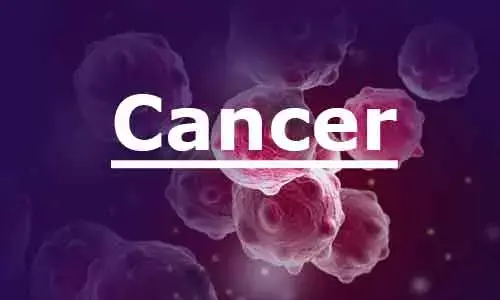- Home
- Medical news & Guidelines
- Anesthesiology
- Cardiology and CTVS
- Critical Care
- Dentistry
- Dermatology
- Diabetes and Endocrinology
- ENT
- Gastroenterology
- Medicine
- Nephrology
- Neurology
- Obstretics-Gynaecology
- Oncology
- Ophthalmology
- Orthopaedics
- Pediatrics-Neonatology
- Psychiatry
- Pulmonology
- Radiology
- Surgery
- Urology
- Laboratory Medicine
- Diet
- Nursing
- Paramedical
- Physiotherapy
- Health news
- Fact Check
- Bone Health Fact Check
- Brain Health Fact Check
- Cancer Related Fact Check
- Child Care Fact Check
- Dental and oral health fact check
- Diabetes and metabolic health fact check
- Diet and Nutrition Fact Check
- Eye and ENT Care Fact Check
- Fitness fact check
- Gut health fact check
- Heart health fact check
- Kidney health fact check
- Medical education fact check
- Men's health fact check
- Respiratory fact check
- Skin and hair care fact check
- Vaccine and Immunization fact check
- Women's health fact check
- AYUSH
- State News
- Andaman and Nicobar Islands
- Andhra Pradesh
- Arunachal Pradesh
- Assam
- Bihar
- Chandigarh
- Chattisgarh
- Dadra and Nagar Haveli
- Daman and Diu
- Delhi
- Goa
- Gujarat
- Haryana
- Himachal Pradesh
- Jammu & Kashmir
- Jharkhand
- Karnataka
- Kerala
- Ladakh
- Lakshadweep
- Madhya Pradesh
- Maharashtra
- Manipur
- Meghalaya
- Mizoram
- Nagaland
- Odisha
- Puducherry
- Punjab
- Rajasthan
- Sikkim
- Tamil Nadu
- Telangana
- Tripura
- Uttar Pradesh
- Uttrakhand
- West Bengal
- Medical Education
- Industry
Indian scientists of a cancer institute identify 114 genetic variants linked to oral cancer

Bengaluru: A joint team of scientists from Institute of Bioinformatics and Applied Biotechnology and HCG Cancer centre have identified 114 genetic variants which cause oral cancer in humans.
The study, published in the journal Frontiers in Oncology, has also revealed key genetic signatures that can predict survival in oral cancer patients with over 90 per cent accuracy.
Also Read:Genetic clues link lipoprotein A to prostate cancer risk
Oral cancer is uncontrolled cell division in the oral cavity which needs immediate medical attention. There is wide variety of symptoms including lump/mass, reddish specks, white thrush that cannot be removed and difficulty in opening of the mouth. If untreated for a prolonged period it may lead to Severe pain bleeding ,Malnutrition and dehydration due to the swelling and pain in the mouth causing swallowing problems.
Further, the analysis of mutations gave out a list of unique genes associated with 114 novel variants, of which 35 were oncogenes, 11 were tumor suppressors, and 2 DNA damage repair genes.
Oral cancer is one of the most common in the country and accounts for 40 per cent of all the cancer cases, with significant morbidity and mortality. Currently, even after the best treatment, oral cancer is found to recur in up 50 per cent of cases.
But the newA research would make it possible to provide treatment in an effective way such that the disease does not recur and enables precise treatment with improved quality of life, said Prof. Vibha Choudhary, from IBAB, in a statement.
The researchers have also identified novel mutations in the IRAK1 gene, which would pave the way to provide target-directed treatment without affecting the healthy cells in the body. The findings would guide towards cell-targeted personalized treatment, the researchers said
.Also Read:Oral cancer has better clinical outcomes among young compared to elderly: Study
Medical Dialogues Bureau consists of a team of passionate medical/scientific writers, led by doctors and healthcare researchers. Our team efforts to bring you updated and timely news about the important happenings of the medical and healthcare sector. Our editorial team can be reached at editorial@medicaldialogues.in.


